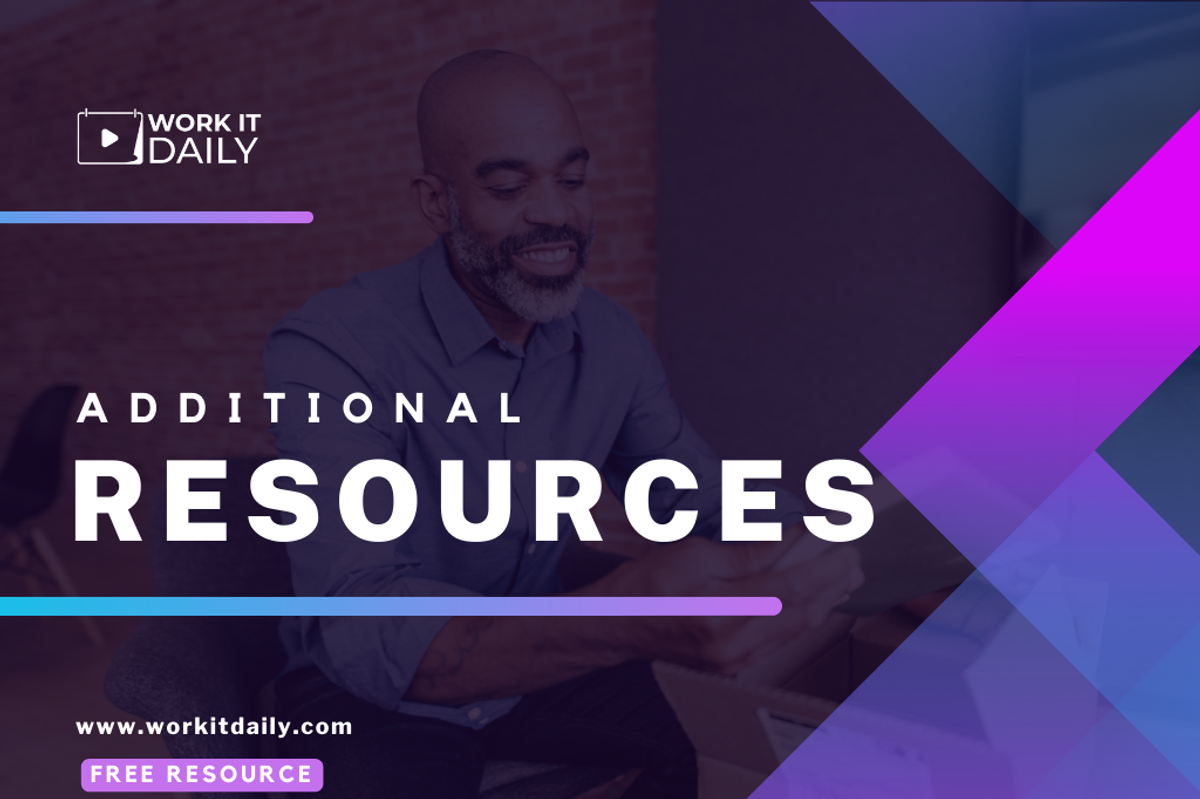When an interviewer asks you to describe a difficult situation and how you handled it, they''re looking for a few specific things in your answer.

This article will help you understand the purpose of this question, and how you can come up with an answer that makes a great impression.
The Reason Interviewers Ask This Question
Interviewers ask about difficult situations and how you handled them in order to learn more about how you respond to challenges and what you can contribute to the company. It seems standard at first, but it provides more insight into who you are as an employee than most realize.
One of the most valuable bits of information interviewers take away from your answer is how you approach complex situations. Every job involves difficult situations and unexpected problems. During those moments, your problem-solving skills are put to the test.
Your response will tell the interviewer more about your ability to tackle problems as well as how you react in stressful situations. Do you remain calm and approach the problem with a level head? Or do you panic and ignore the issue?
Every response is different, but interviewers can determine how you’ll react if a similar unexpected challenge occurs in this position.
Your answer will also tell hiring managers more about your thought process. It shows whether you take the initiative, how you methodically find a solution to a difficult task, and how well you communicate.
It can also tell them if you own up to your mistakes. Shifting the blame, failing to acknowledge your mistakes, and creating drama are all red flags. Companies want people who are honest, open to communication, and accountable.
Difficult situations come up all the time. Whether you caused that scenario or not, what matters is how you respond and take action.
How to Answer “Describe a Difficult Situation and How You Handled It “
Answering a question like this requires careful thought. It holds more weight than you may realize, and giving a lackluster response could take you out of the running for the job.
Here are a few tips on how to develop a standout answer that works in your favor.
1. Prepare Ahead of Time
Coming up with your answer on the spot isn''t a good idea. The nature of open-ended questions invites you to tell a short story. Everything from the words you say to how you communicate matters!
Think about a difficult task and how you handled it at a previous workplace. Remember what led to that issue, how you responded, and what you did to overcome it.
Then, create a short list of the points you want to hit. A helpful approach to answering questions like this is to use the STAR method.
Begin by describing the difficult task and laying the groundwork to provide context. Then, explain the problem. Discuss your job and responsibilities before going into how they relate to the challenge.
Next, detail the steps you took to address the difficult situation before describing the results of your actions. Don''t forget, the result or outcome of the situation is one of the most important parts of your story.
This specific formula is a great way to tell a compelling story while hitting all the details your interviewer wants to hear. Develop your response early, know what points you want to make, and get comfortable delivering your answer. You don’t need a verbatim script, but you should be able to confidently provide a succinct response.
2. Keep It Work-Oriented
Our next tip is an important one. Keep your answer work-related!
Difficult situations frequently happen in our personal lives. But your interviewer doesn’t want to hear about those scenarios. While they might be important to you, they don''t provide a good indication of your ability to handle a difficult situation at work.
Remember what types of information the interviewer is fishing for when asking this question. They want to know about your problem-solving skills, how you react to work situations, and what you’ll ultimately contribute to this company. This question aims to see how you will act and perform while working.
Personal stories don’t work because interviewers can’t apply your experience to the work environment. Focus on professional challenges you’ve faced in your former jobs.
3. Be Detailed But Concise
It’s easy to provide long-winded responses when talking about a difficult situation you handled. However, rambling on and going too much into detail could work against you. You should provide relevant details while trying to keep your response concise.
Leave out all the gory details and focus on what matters, the facts.
Long responses waste valuable interview time, and can even make the interviewer believe you’re not a great communicator. It doesn’t matter what job you’re trying to get. Communication is important, and rambling about superfluous details shows that you don’t know how to communicate effectively.
Keep it short and sweet while providing enough detail for the interview to understand the situation you’re describing.
4. Stay Professional
Always maintain professional decorum with your responses.
Avoid throwing your old coworkers under the bus or talking badly about your former companies. Badmouthing anyone is not a good look. It doesn’t matter if you’re going to your old company’s direct competitor or entering a brand-new industry.
It paints an ugly picture of your character and may raise a few red flags. Companies don’t want to hire those types of people. Who’s to say that you won’t turn around and badmouth this company if you leave later?
Stay focused on the facts, not your feelings or emotions.
Furthermore, word travels fast. Leaving the wrong impression by talking negatively about others could cost you opportunities in the future.
Never burn bridges! Keep it professional, no matter what you truly feel.
5. End on a High Note
Finally, don’t forget to end on a high note.
When talking about difficult situations you handle at work, it''s easy to accidentally frame it as a bad experience. But it’s not about highlighting the bad. It’s about showing how you addressed the task at hand and the positive outcomes that followed!
Use this opportunity to showcase your problem-solving skills and detail how you navigated challenges that others might not be able to manage. Be proud of how you resolved the problem and reassure the interviewer that you can handle anything.
Talking about the positive outcome is a great way to end on a high and prove that you have what it takes to perform well in this new job.
Common Mistakes When Answering This Question
A great answer can greatly improve your chances of getting a job offer. But a handful of mistakes can also pull you from the running.
Here are a few you want to avoid while developing your answer.
Avoid Shifting the Blame
Blaming someone else is not how to respond to this question. If a problematic situation arose from something you did, own up to it! That’s a big deal and shows your professional maturity.
Mistakes happen, and hiring managers understand that no one is perfect. But owning up to a mistake and taking action is one of the best things you can do. No hiring manager wants to bring someone on who constantly blames others for their shortcomings.
Use this question to show how you’ve grown and what you’ve done to ensure you never repeat those mistakes. That displays excellent maturity and growth. However, blaming others will likely raise a few red flags.
Leave Out the Drama
We get it: handling difficult situations can sometimes lead to workplace drama. But should you talk about that? Absolutely not!
Leave the drama out of the equation. Interviewers don’t need to hear about the nasty fallout or water cooler gossip. Focus on the facts and what you can say to highlight your problem-solving skills.
Don’t Sound Pompous
When you develop your answer, you need to have the right balance of pride and humility.
It’s great to be proud of how you addressed a difficult task and all the good that came after. Pat yourself on the back and recognize how well you handled a difficult situation. But err on the side of caution and avoid tipping a toe over the line of cockiness.
Pompous attitudes never work in an interview. Have some humility, but don’t be afraid to recognize the good you did.
Don’t Lie
You might feel the temptation to bend the truth about a situation. Maybe you regret how you responded, so you lie and say what you wish you did.
Lying is never a good idea during a job interview. You might not think it matters, but interviewers can easily speak to someone who can corroborate your story.
Nothing will ruin your chances of getting a job faster than lying and getting found out. Honesty is always the best policy.
Avoid the “I’m Perfect” Response
Some people hear this interview question and think that it’s a trap. Instead of being honest and discussing real work experience, they say they’ve never had a difficult situation because they’re so good at their job.
Not only is that unrealistic, but it doesn’t do you any favors. A response like that doesn’t provide the information interviewers are looking for. Plus, it will likely make hiring managers question your authenticity.
They may start to wonder what skeletons you’re hiding in your closet!
Example Answers
Your response should be unique to your actual experiences at former jobs. However, we have a few example answers to help you understand what interviewers want to hear and how you can structure your response.
Example 1
In our first sample answer, the job-seeker talks about a time when they used communication to solve a problem. It works because it shows how they handled the difficult situation professionally while getting excellent results.
“In my last job, I managed a relatively large department where every person had to provide weekly reports. I hired a well-qualified team member, but they consistently had issues with their reports. They were incomplete, lacked the data needed for others to do their jobs, and always required reworking.
I suspected there was a miscommunication, and the new hire needed more precise information about what we expected from those reports. So, I created sample reports. I provided those to the new hire, asked other supervisors to review them alongside their previously submitted reports, and made the sample readily available for the entire department.
Not only did this new hire’s reports dramatically improve, but the quality of everyone’s did as well. It showed me that clearly communicating expectations made a noticeable difference in results.”
Example 2
In our next example, the candidate is honest about a situation they caused. It’s a good response because they own up to the mistake, detail how they changed, and what positive outcomes came after.
“When I started my marketing career, I was eager to prove myself. At the time, my company had a queue of tasks available for anyone on the team to take. I wanted to demonstrate my capabilities, so I took on as many tasks as possible.
However, the workload became too much, and I had problems meeting deadlines. I realized that I was sacrificing the quality of my work to get everything submitted on time.
I spoke to my supervisors about the issue and explained why my work wasn’t up to par. They reassigned some of the work I had already accepted to available team members, and then I could focus on quality over quantity.
I learned that taking on more work than I could handle was not the best approach. As a result, I became more mindful of my workload, and the quality of my submissions significantly improved.”
Example 3
Our final example answer details an all-too-common scenario for some industries. The candidate discusses the challenge of working with an angry client. This response works well because it highlights many relevant skills and shows how the candidate calmly reacts to a situation many people fear.
“Several years ago, my team lead asked me to take on a project experiencing many issues. My colleague previously managing the project had left unexpectedly, which meant the project began to fall behind with many issues needing to be addressed.
During my first meeting with the client, he was understandably angry. He came into the discussion on the offensive, yelling about the unresolved issues and delays. I respectfully listened to those grievances, made notes of his problems, and empathized with his concerns.
I told him I would address all complaints before asking him questions about every concern. Then, I detailed the specific actions I would take to resolve them.
It took me several weeks to get this project back on track, but I kept the client updated every step of the way. He eventually apologized for his behavior during our first meeting, and we developed a great rapport moving forward. I regained his trust, and he stayed with our company even after I left.”
Conclusion
Describing a difficult task and how you addressed it can help you make a great impression in a job interview.
All it takes is an understanding of what the interviewer is looking for, and a little bit of preparation.
The post Describe A Difficult Situation & How You Handled It (Tips) appeared first on Career Sherpa.















